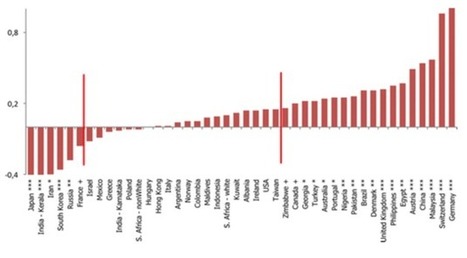So why is this? Why do some societies not encourage casual smiling? I got my answer, or at least part of one, when I stumbled across a new paper by Kuba Krys, a psychologist at the Polish Academy of Sciences. In some countries, smiling might not be a sign of warmth or even respect. It’s evidence that you’re a fool—a tricky fool.
Krys focused on a cultural phenomenon called “uncertainty avoidance.” Cultures that are low on this scale tend to have social systems—courts, health-care systems, safety nets, and so forth—that are unstable. Therefore, people there view the future as unpredictable and uncontrollable.
Smiling is a sign of certainty and confidence, so when people in those countries smile, they might seem odd. Why would you smile when fate is an invisible wolf waiting to shred you? You might, in those “low-UA” countries, even be considered stupid for smiling.
Krys also hypothesized that smiling in corrupt countries would be, um, frowned upon. When everyone’s trying to pull one over on each other, you don’t know if someone’s smiling with good intentions, or because they’re trying to trick you....



 Your new post is loading...
Your new post is loading...















Finally, an explanation for Bitchy Resting Face Nation. iInquiring minds will want to read this research. Recommended reading. 9/10